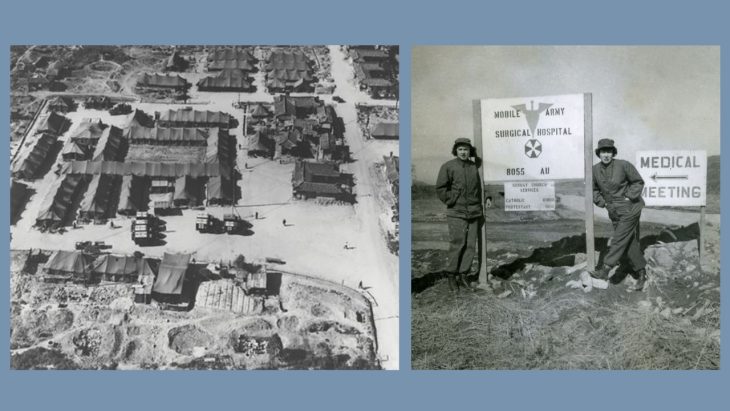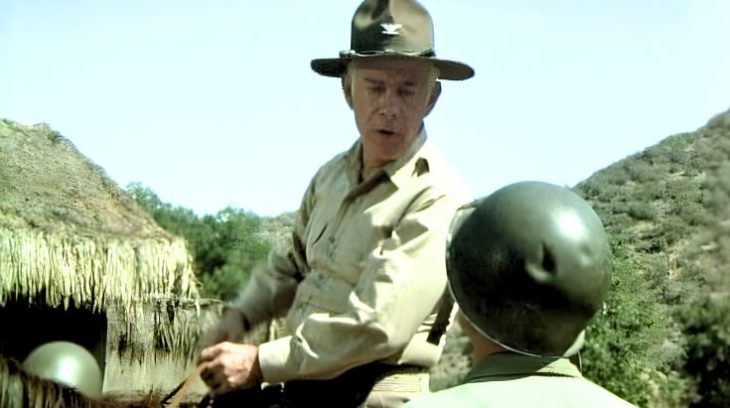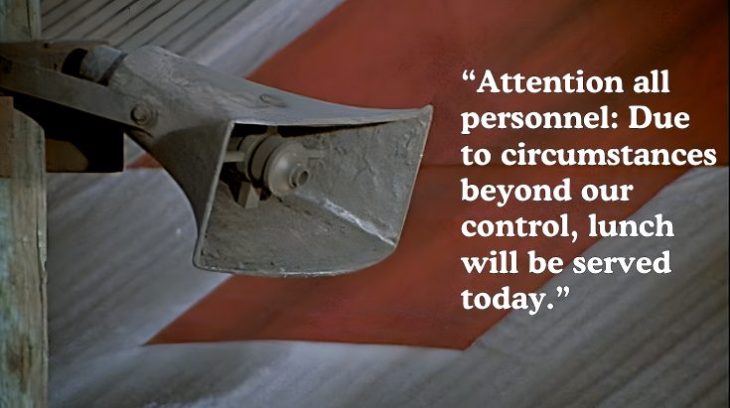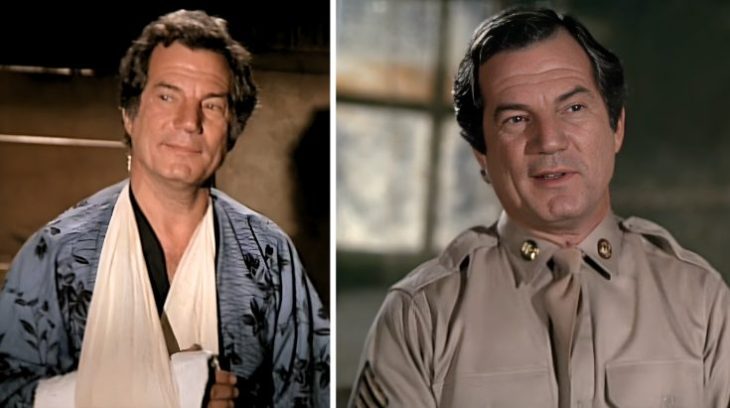On the TV show MASH, some of the characters, notably Colonel Henry Blake and Trapper John McIntyre, were sent home because they had accumulated enough points. This raises many viewer questions about how doctors were rotated out of actual MASH units in the Korean War, and why Hawkeye was never sent home, but Trapper John was. Even B.J. was temporarily discharged during the final farewell special, although his orders were rescinded and he was sent back. This seems to make no sense. Hawkeye remained even after falling under psychiatric care several times, most seriously during the aforementioned final episode, Goodbye, Farewell, and Amen. What’s the reality regarding this rotation points system, and why was it used on MASH?

The Points System Was Not Accurate
The big question is whether the point system depicted in the show was accurate. It was not. The points system, called the Adjusted Service Rating Score, was introduced at the end of WWII as a way of determining which U.S. Army soldiers would be sent home first. It was not used after WWII, and certainly was not used for doctors or medical personnel during the Korean War. Doctors were assigned 18-month tours of duty and were sent home after this amount of time had been served, unless they were discharged for other reasons, such as medical or hardship. Some doctors did have shorter tours than 18 months, especially unit commanders, but not because they had accumulated enough points to be sent home early.
Therefore, the points system was used in the MASH show for another reason. What was this reason? Pure convenience. When an actor left the show, the character had to be written out in a plausible way. However, since we were never given any indication as to how long any one character had been at the unit (although there are hints, see below), and there was no such timeline written into any of the plots, it would be difficult to explain why, for instance, Trapper was sent home but Hawkeye remained.
To be clear, it was never revealed that Trapper had been in Korea longer than his best friend, Hawkeye. Indeed, setting up any realistic timeframe for tours of duty would have required a realistic timeline for the show. This just couldn’t be done. The show, to some extent, had to be static and ignore the true timeline of the war, which it did, with notable disparities, such as 1951 being repeated after Henry left.
Why Did Henry Have More Points Than Hawkeye?
It was revealed in one episode that Henry Blake had been at the unit before any of the others were assigned (Rumor at the Top, Season 10, Episode 4). Margaret is afraid that the unit is going to be broken up and that the first thing that will happen is that Colonel Potter will be reassigned. She goes to Father Mulcahy to talk about it. The father thinks the idea is good news since it will relieve some of the strain on the doctors, but Margaret tells him it’s awful: “If you’re gonna start up a MASH unit, the first thing you need is a commanding officer. Wasn’t Colonel Blake already here when we were assigned?” Mulcahy agrees that that is correct.
We also learn, in another episode, again from Father Mulcahy, that Henry Blake was already there when Radar arrived (Period of Adjustment, Season 8, Episode 6). Both these examples seem to indicate that Col. Henry Blake was the original commander of the 4077 and formed the unit from scratch. This is, of course, preposterous in every way if it also means that Margaret and all the other original main characters were the first personnel assigned. Therefore, everyone should have already been sent home.
Ignoring this, however, it’s clear that Blake then had more time to accumulate points than anybody.
If, on the other hand, Henry Blake had already gone through a number of personnel changes by the time the others arrived, this would be equally preposterous, as he would have been sent home long before.
During the fifth season, it is mentioned that Hawkeye had been in Korea for more than two years. This, of course, is impossible and makes no sense.
The Real Henry Blake
The original novel is based on Dr. Richard Hornberger’s experience at the 8055th MASH during 1951 and 1952. His commanding officer was Major Henry Holleman, a doctor from Columbus, Mississippi (my home state). Holleman, unlike Henry Blake in the show, was no novice to commanding a medical unit. While he also had a private practice, he had also been commander of the 31st Division Artillery Brigade Medical Detachment of the Mississippi National Guard.
Dr. Holleman served a one-year tour and was not the very first commander of the unit. He assumed command in September 1951 at age 35. Just like Henry Blake, he loved to fish! The real Henry survived his time in Korea. He died in Columbus, Mississippi, on November 7, 2011, at the age of 94.
Before Col. Holleman took over, and before Dr. Hornberger (aka Richard Hooker) came to Korea in the Spring of 1952, the commander was Col. Thomas E. Beeler, a regular Army Board Certified Surgeon who had served in World War II. He taught many doctors how to care for the wounded in Korea. As far as I know, he served a year, as well.
In the series, we do get a strange hint about how long Hawkeye is supposed to have been in Korea. In Rumor at the Top, mentioned above, Hawkeye explains to Klinger that the orders sending him to the MASH were signed by General Torgenson. “He’s a MASH maker,” said Hawkeye. To have a person who created MASH units sign your orders would tend to indicate you were there at the beginning, when the unit was first being formed. This would lend further credence to the notion that Hawkeye was original to the unit, and so was Margaret, Trapper, Frank Burns, etc. This, of course, makes no sense at all, since it would mean Hawkeye should have a boatload of points in this fictional universe.
We could speculate that Hawkeye’s anti-military shenanigans caused him to lose points, but none of this matters because there are no answers in the plot. Therefore, there are no sensible answers here. Different writers were free to have Hawkeye or Margaret say all sorts of things for the convenience of the plot, without fear that anyone would pay much attention!
Regardless of how long anyone had been at the 4077, explaining why they were being sent home would have required a lot of explanation had the show attempted to be historically accurate. Writers would have needed to explain how long Henry had been there as compared to Hawkeye or Trapper, for instance. For that matter, how about Frank Burns?
So, in Abyssinia, Henry, to have Radar come into the O.R. with an important message for Henry and say, “You got all your points. You’re goin’ home,” was an easy solution. It took all of five seconds, and no other explanation was required. Keep in mind that all of the questions we have now, in the internet, streaming, and DVD age, would not have been as apparent and pressing during the early broadcast days.

Why Did Trapper John Have More Points?
There is no justifiable reason for Trapper John to have more points than Hawkeye or anyone else. In the novel and film, in fact, when Trapper arrives, both Hawkeye and Duke (who wasn’t in the series) are already at the unit. Other than Henry Blake and Hawkeye, there was never, to my remembrance or knowledge, any mention of how long any one character was supposed to have been in the unit, despite the hint by Margaret that they may have all been there since the beginning. It just isn’t clear.
In the final analysis, Trapper having enough points to go home was just a convenient way to justify the character’s leaving, since Wayne Rogers, the actor, was leaving. Having a standard tour of duty would have opened up too many questions! It was better to use a fictional points system than to pretend that the standard tour of duty was one year, or 18 months, or any other time period. If one year or even 18 months was enough, then there would be no way to explain why Hawkeye, Frank Burns, or later B.J. or Charles Winchester did not finish their terms.
Most doctors stayed for a year in Korea, or perhaps a few months more. It was possible for a doctor to volunteer to stay longer and many surprisingly did. Nobody one the show volunteered to stay and Hawkeye certainly never did. The points system that many sources continue to claim was used during the Korean War would have been a detriment. It was clear from an early date that doctors could become ineffective from sheer fatigue and trauma. Hawkeye himself is portrayed as being greatly affected by his long service. The idea of keeping a doctor at a MASH until he required psychiatric services and then refusing to send him home after even two years is entirely fictitious.






